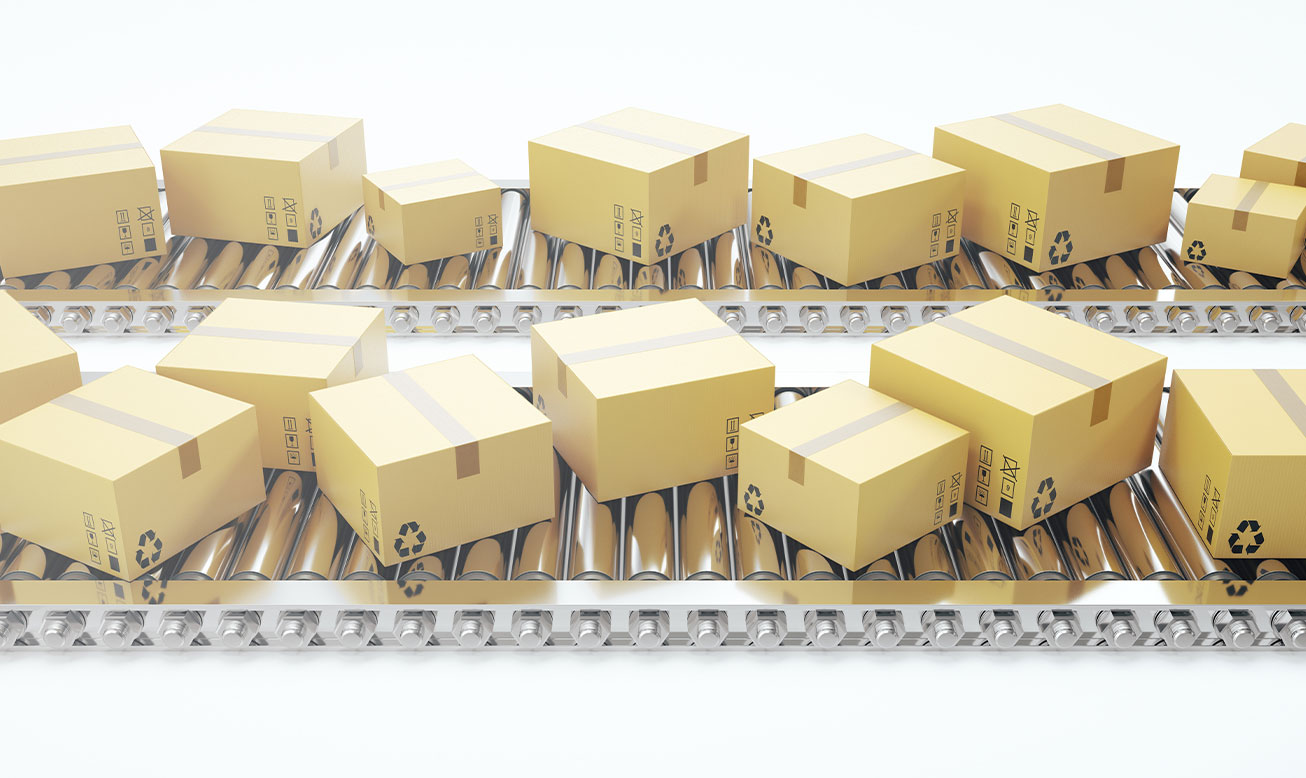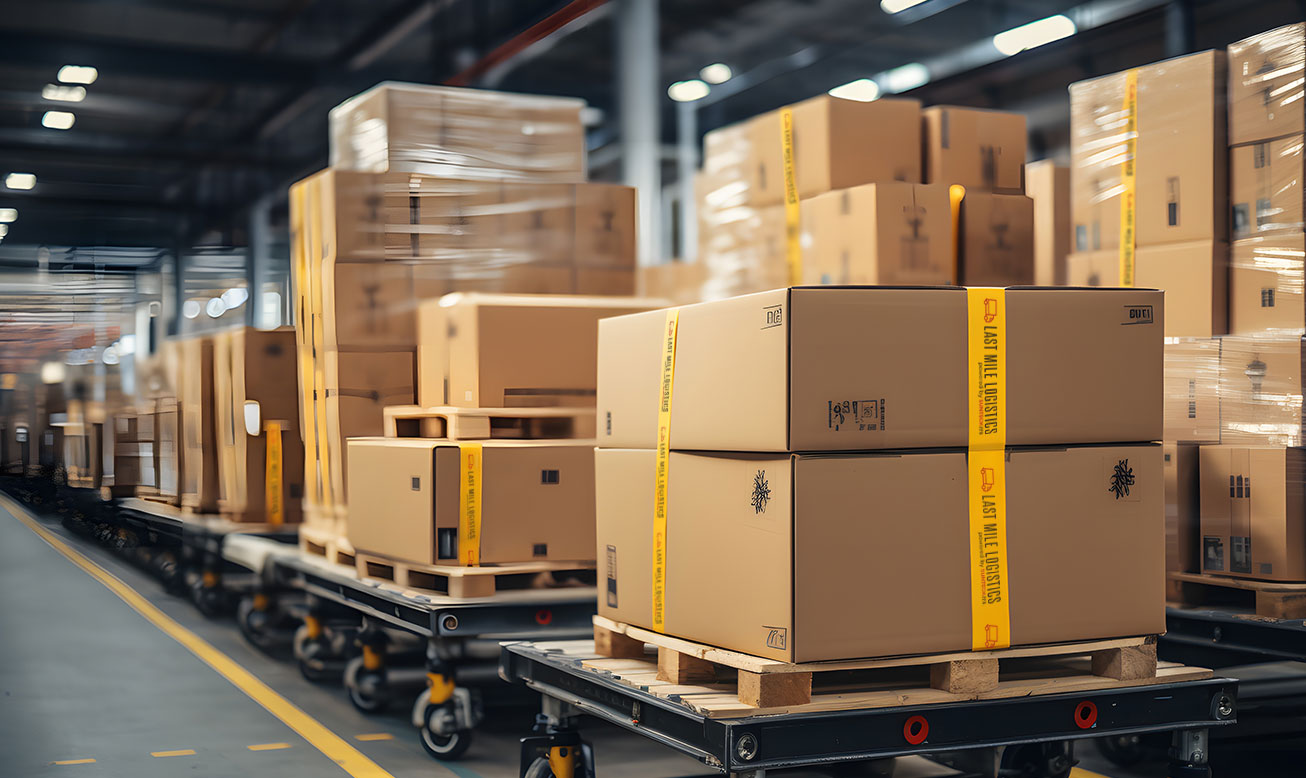October 20, 2025
Overcoming Current U.S. Supply Chain Issues
The U.S. supply chain has come a long way since the disruptions caused by the pandemic. Yet, many supply chain issues continue to challenge companies across industries. Whether it is limited inventory, freight delays, or high transportation costs, businesses still face pressure to maintain efficient, predictable delivery operations.
As an experienced non-asset-based carrier working with partners throughout the nation, we understand that collaboration, flexibility, and proactive communication can help companies overcome these obstacles. Benefiting from our extended network of approved transportation partners, we help clients turn potential risks into manageable challenges.
Understanding the Current U.S. Supply Chain Issues
While the logistics industry has stabilized compared to the chaos of 2020 and 2021, supply chain and distribution management remain tough. Today, supply chains depend on a mild balance between demand forecasting, sourcing, transportation, and communication among all stakeholders. When any link in that chain breaks, businesses experience the impact quickly, from empty shelves to lost revenue opportunities.
So, what are the key issues of supply chain management today?
1. Demand Forecasting Complexity
Consumer behavior changes faster than ever. The growth of e-commerce, combined with unpredictable market shifts, makes it difficult to forecast demand accurately. Companies that rely on outdated data or limited visibility may find themselves either overstocked or unable to meet customer needs.
2. Supply Chain Visibility
Many companies still lack end-to-end visibility. Without real-time tracking and data integration, it becomes difficult to identify delays or potential losses before they affect operations. Reliable non-asset-based carriers like Last Mile Logistics can close that gap through integrated monitoring and communication systems.
3. Material Shortages and Production Delays
From semiconductors to construction materials, supply chain shortages have continued well beyond the pandemic years. While some categories have improved, certain industries still struggle to source raw materials in time to meet demand.
4. Congestion at Key Hubs
Major ports and distribution centers across the U.S. continue to face intermittent congestion, particularly during peak seasons such as the months leading up to Black Friday and the holidays. Advanced scheduling and smart routing are crucial for maintaining a seamless flow of shipments.
5. Rising Freight Costs
Freight prices fluctuate due to fuel costs, driver availability, and geopolitical factors. Businesses without strong carrier relationships may face higher-than-average rates or inconsistent service quality.
6. Integration and Digital Transformation
Many companies are still in the process of integrating their systems across multiple suppliers, carriers, and distribution points. This fragmentation limits the ability to share accurate, real-time data, slowing down decision-making.
7. Workforce and Labor Challenges
The shortage of qualified drivers, warehouse workers, and logistics managers remains a persistent challenge. Efficient supply chains must prioritize workforce support and operational flexibility to keep shipments on schedule.

Practical Solutions for Overcoming Supply Chain Challenges
Building a resilient, flexible, and transparent network is crucial for overcoming supply chain challenges. At Last Mile Logistics, we adopt a non-asset-based carrier approach, which means we do not own the trucks or warehouses; instead, we partner with an approved network of transportation providers. This model enables us to scale capacity, mitigate risk, and offer clients reliable options, even during times of disruption.
Here are several ways companies can improve their operations and reduce losses across their supply chain and distribution systems:
Improve Visibility and Flexibility
Modern supply chains thrive on transparency. Using digital tools for route planning, tracking, and analytics provides immediate insight into where freight is, when it will arrive, and what potential issues may arise. Our logistics teams use these systems daily to anticipate disruptions before they occur.
Secure the Supply Base
Diversifying suppliers and carriers reduces dependency on any single source. Non-asset-based carriers can quickly pivot to alternative partners if one route or provider becomes unavailable. This flexibility prevents bottlenecks and keeps deliveries consistent.
Communicate Effectively
Open and frequent communication across all stakeholders is essential. Whether it is sharing forecast data, shipment updates, or potential weather impacts, timely communication prevents minor problems from becoming costly setbacks.
Support the Workforce
Logistics is ultimately a people-driven business. Supporting drivers, warehouse staff, and customer service representatives through training, safety programs, and fair scheduling improves reliability and reduces turnover, both of which strengthen the entire supply chain.
Build Resilience for the Future
Resilient supply chains are those that can adapt to unexpected changes and disruptions. Building redundancy into the system, utilizing multiple carriers, offering flexible contracts, and maintaining scalable capacity enable companies to respond more quickly to disruptions.
Innovate with Purpose
Technology is valuable only when it serves real operational goals. Whether through predictive analytics, digital freight matching, or automated scheduling, innovation should simplify and strengthen the supply chain, rather than complicating it.

The Role of Loss Prevention in Modern Supply Chains
One often-overlooked aspect of challenges in supply chain management is loss prevention. Cargo theft, damage during handling, and inaccurate documentation can result in significant financial losses. Non-asset-based carriers like Last Mile Logistics prioritize loss prevention through several strategies:
Partner Vetting and Compliance – Each transportation partner in our network meets strict safety and reliability standards.
Real-time Monitoring – Advanced tracking systems provide updates at every step, reducing the risk of misplaced or delayed shipments.
Damage Control and Claims Support – Our team ensures a fast response and transparent documentation in the event of any incident, protecting client interests.
Security Best Practices – From route optimization to secure parking and data protection, our network adheres to procedures that align with federal and industry regulations.
These measures reduce both physical and financial risks, allowing clients to focus on growth rather than disruption management.
The Added Value of Non-Asset-Based Carriers
At Last Mile Logistics, we are strategic partners, not just transportation providers. Because we work with multiple carriers, 3PLs, and warehouse operators, we can adapt faster to supply issues and market changes. Instead of being limited by fixed assets, your business will benefit from our efficiency, transparency, and choice.
This flexibility often means the difference between a delayed delivery and an on-time, intact shipment. It also helps minimize exposure to regional disruptions such as weather events, labor strikes, or route congestion.
Moving Forward with Smarter Supply Chain Strategies
The current supply chain environment will continue to evolve. While supply chain shortages and cost fluctuations are expected to persist, businesses can mitigate their impact through collaboration, digital visibility, and flexible transportation models.
At Last Mile Logistics, our goal is to help companies overcome supply chain challenges through reliable partnerships, data-driven planning, and expert coordination. By combining an approved, national network of trusted carriers with decades of logistics experience, we help clients maintain efficiency, reduce losses, and stay ahead of disruption.
Supply chain resilience does not come from eliminating problems entirely but from being ready to manage them effectively. Companies that embrace flexibility, technology, and strong partnerships will continue to thrive even when supply chain problems arise.
If your business is reviewing its transportation strategy or preparing for peak season, Last Mile Logistics is ready to support you with customized solutions that strengthen every link of your supply chain.

